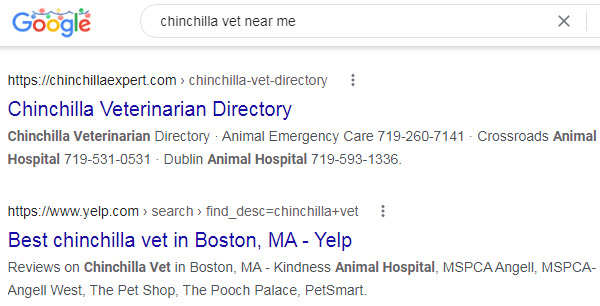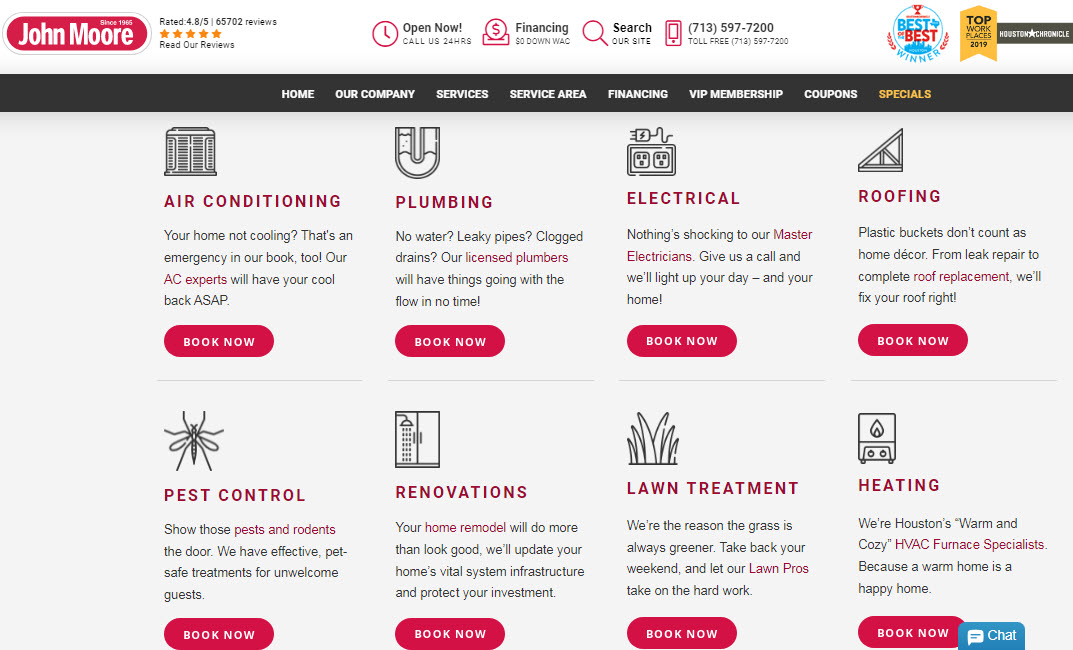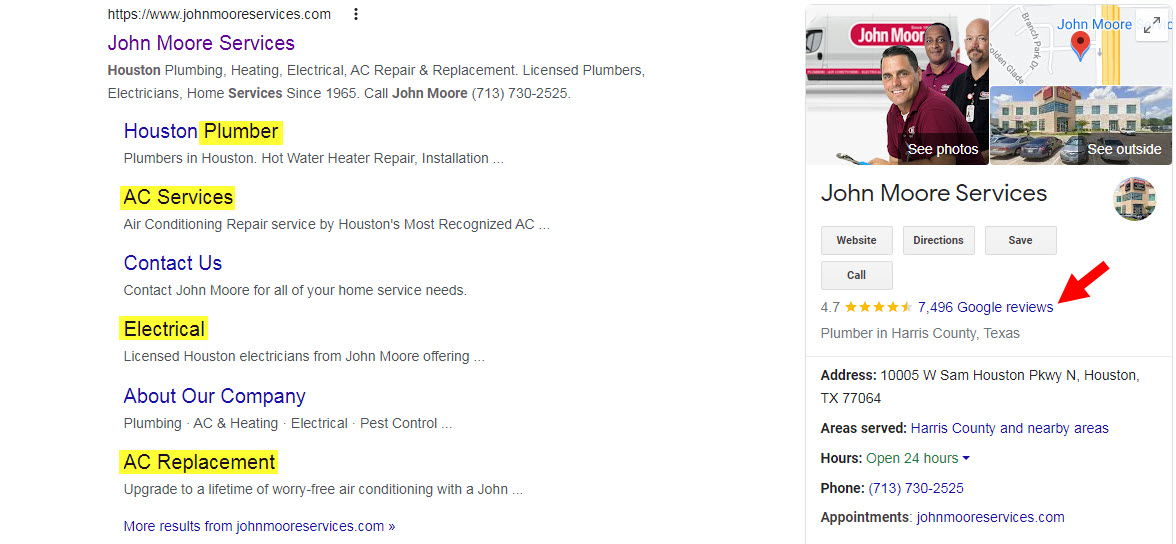“Does Google expect my site to focus on just one thing?” is a common concern people have about their SEO campaigns, both local and non-local. You might also have that concern if you’re thinking about wheeling out a service or product that’s very different from your other services or products.
The one offering seems at least a little out-of-place with the other offerings on your existing site, so you’re considering building a new, additional site. You worry that by adding the unusual service to your current site you’ll mess up your existing rankings, so the separate site seems simpler and cleaner. Maybe you also wonder whether the different/unusual service or product even can pull in some rankings on the main site, or if it must live on a separate site.
In considering an additional site, you’re not looking for extra work, but rather just don’t want to mess up a good thing or go on a fool’s errand. Of course, there may also be a “branding” concern, but I’ll set that aside because it may not be an issue for you, or maybe you’ve already figured it out. So I’ll assume your main worry is purely an SEO one – about whether you’ll water down your site and end up not ranking for much at all.

I’ll give you my short answer now, and fill in some gaps in a minute: you CAN successfully branch out on your site and rank for a service/product that’s different from the others, if you play your cards right that will not mess up your rankings for the other offerings, and unless branding is a big concern you do not need a separate site. Doesn’t mean it’s a bad idea, but rather just that it’s not obligatory.
As usual, what I say is based on what I’ve seen for my clients and observed in the wild. In keeping with that, here are a few examples I’ve been involved in, which may sound like the situation you’re in:
Example situation #1: A roofing company tries to rank also for siding terms and gutter terms, and succeeds.
Example situation #2: A divorce attorney tries to rank also for bankruptcy and personal-injury terms, and succeeds.
Example situation #3: A couples counselor tries to rank also for individual-therapy terms, and succeeds.
Example situation #4: A dentist who focuses mostly on cosmetic procedures tries to rank also for implant-dentistry terms, and succeeds.
Example situation #5: A battery store tries to rank also for phone-repair terms, and succeeds.
I have more examples, but you get the idea. In those cases and in many others I’ve seen, the branching-out didn’t involve whipping up a separate site for the different service. You probably know exactly what I’m talking about: No doubt you have seen some local businesses outrank you for terms that are dead-on relevant to your business and not very relevant to theirs, and thought “Why are they outranking me for that term – WTF?”
The kicker is that if those competitors went the route you’re considering – if they had created separate sites for the relative oddball services or products – there’s a good chance they wouldn’t have outranked you. Instead they chose to kept everything together, and it seems to have worked out perfectly.
But wait a minute. Doesn’t Google care about the theme of your whole site? Don’t you get some advantage from focusing on a niche? Doesn’t Google favor specialists over generalists (especially in the Google Maps results)?
Yes, to some extent. Where all else is equal, the specialized site has an advantage over the plump site, probably because generally more of the pages are relevant to the niche and viable to rank, because the domain name is probably dead-on relevant, because probably a greater percentage of the links are from sites relevant to the niche, and for about half a dozen other reasons I can think of (or speculate on). That’s why you can create a separate site, and why (with some work) it can be extremely effective.
But the older site and the newer site are not equal. Probably the most important difference is the old site typically has more links from relevant sites than the new site will for a while. Google knows more about the older site in general, and sees more signs of life, including whether you whip up a page for the new service and existing visitors go to it right away (even before it ranks for anything). Your site may already have a smattering of rankings for terms related to the “different” service or product, even though you don’t have any pages for it yet. The difference is that in one case you’re raising a kid for 5-6 years and then teaching him or her to ride a bike, and in the other case you’re only teaching a kid who’s already 5 or 6 to ride a bike. One of those processes is much quicker.
That’s my theory, anyway.
In any event, the point is you have options. You can whip up a new site to target the different or unrelated service, but it will take longer. In my experience it’s easier to expand the range of terms the existing site ranks for, especially if it already performs well. Here is a great example.


How do you go about getting your main or only site to rank for terms that are very different from what it’s ranked for so far? By doing the basic steps I talk about all the time:
- On your longtime site that’s all about widgets, make a detailed page on each gizmo you offer.
- Go heavy on the internal links to the page about the gizmo, including on the homepage, main navigation, footer, and on a couple of other other products/services pages.
- Add to your homepage a section all about the gizmo(s). Keep all the existing content about the widgets you’re so renowned for. It’s both/and, not either/or.
- Get links from a couple of sites that are more relevant to gizmos than to widgets, to complement the links you’ve already got from widget-related sites.
- Get Google Maps reviews and other reviews from customers who bought the gizmo. Encourage them to go into a little detail in their reviews.
- If possible, specify the applicable “Gizmo Maker” or “Gizmo Seller” category on your Google Business Profile (Google My Business) page.
- Study the “performance” tab in Google Search Console and see if you’re getting any impressions for gizmo terms.
- On an ongoing basis add detail, internal links, FAQs, reviews, photos, videos, or other content to your “gizmo” page(s). Keep them growing.
- In the later stage of that process revisit the idea of the separate site for gizmos. Yes, the one I just said you should skip in favor of working on the existing site. If it ranks well, great. It may. Or if it doesn’t rank, you can always redirect or axe it. The separate site may not do as well as the page(s) on the older site, or it may take more work than you’re willing to put in, but that’s what you’re here to discover. Once you’ve avoided a situation where a dime is holding up a dollar, you can get back to work.
Do you have a site that seems “typecast”?
To what extent do you have outlier pages that rank for very different terms from what the rest of your site ranks for? And why do those pages do well, as far as you can tell?
Any questions, puzzles you’re trying to figure out, or strategy suggestions?



Recent Comments